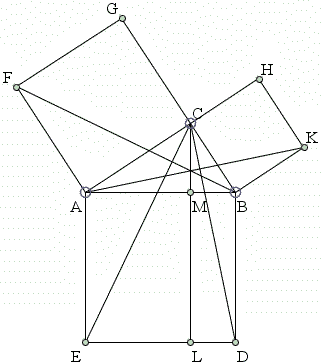 MANY OF MY BUDDHIST FRIENDS struggle with the idea that the intentions behind actions determine the ethical value of them, i.e. whether they are skilful or unskilful. Some really don't see how this could be. In studying the Kālāma Sutta a penny dropped for me about intention and action.
MANY OF MY BUDDHIST FRIENDS struggle with the idea that the intentions behind actions determine the ethical value of them, i.e. whether they are skilful or unskilful. Some really don't see how this could be. In studying the Kālāma Sutta a penny dropped for me about intention and action.There is a tendency in the West to discuss ethics and morality in the abstract. We have hypothetical discussions about whether karma might have caught up with Hitler in his next life, or whether one could kill another human being if the intention really was kindness (in the case of euthanasia for instance). We don't always ground our discussion of morality in the day to day and personal. The Kālāma Sutta suggests that this is a mistake. The Buddha critiques a series of ten criteria for making ethical decisions. The first four relate to religious traditions: revelations, lineage, quotations, and tradition. The next five to ways of thinking: speculation, inference, interpreting signs, ideologies, and uncritical acceptance of what seems likely. The last criteria is respect for holy men. [1] He then offers the positive criteria of personal experience as a much better guide to ethical decisions.
My exploration of the terms and my justifications for these translations are set out in my full translation and commentary. Here I want to look at these criteria and what they tell us about the Buddha's morality. In the case of tradition the criteria refer to forms of knowledge which are revealed in various ways and passed down though a teaching lineage. Someone has a vision and organises a movement around themselves (or someone else organises it around them) and everyone who joins is expected to behave a similar way. The rationale for morality is the original vision - but this is not always rooted in practical relationships, and sometimes it ignores the reality of human interactions. Often this kind of morality includes arbitrary elements, morality which is not ethical but simply etiquette. The Vinaya rules for example are largely etiquette with no overt moral significance.
Similarly the various kinds of intellectual criteria refer to ways of thinking about morality which are not rooted in experience. The first is something like Kant's 'pure reason'. When we imagine what the world is like without any reference to experience we can come to some odd conclusions. Think about how influential the idea of the "four humours" has been in Western Society for instance - for may centuries they formed, on almost no evidence, the basis of psychology and medicine. This is one of the great achievements of the Enlightenment - that it grounded medicine in anatomy and physiology rather than abstract ideas. We might think also of some of the early psycho-analytic theories and how they sought to explain human behaviour in terms of imaginary psychic entities like ego, id, and super-ego; or complexes, or archetypes; or more recently 'repressed' memories. [2]
The last criteria amounts to aping the behaviour of a spiritual teacher. This has caused enough problems in Western Buddhism to need little in the way of elucidation.
Because the terms are actually quite vague and the translations less than certain, the thinking about them has been ambiguous. I wanted to relate the terms to what I perceived to be the dynamic of the sutta. Looking at what comes next the Buddha questions the Kālāmas about the effects of craving, aversion and confusion and points out that these root poisons make people behave unskilfully. The penny dropped for me when I saw that all of the resulting wrong actions are about how we relate to other people.
Buddhist morality is primarily about the quality of our relationships to other people. We extend this to all breathing beings (pāṇa), but it's mainly about people. Morality is often thought of as all of our behaviour, all willed actions. Ethics is the narrower subject of the limits which we place on our behaviour. Here we see that Buddhist morality is actually a slightly narrower subject again. It is not simply acting with craving or aversion that is problematic. It can be broader, but the basic Buddhist precepts emphasise relationship. It is relating to other people on the basis of craving or aversion that is primarily problematic, and it is working at this level which is transformative.
There is a caveat. Imagine that you eat what looks like a juicy sweet berry, but it turns out to be bitter. The aversion you feel is because the bitter berry is likely to be poisonous, and you spit it out in order not to be poisoned. This is not morally significant aversion. The attraction to the sweet berry in the first place is not morally significant craving. It is hunger, and a preference for high calorie food that is entirely logical and built into us by evolution. These kinds of attractions and repulsions are active within us all the time. Sometimes we make the mistake of demonising natural desires and aversions, and in doing so we miss the point.
Of course there are a lot of fat people in the developed world who just eat too much. But we could see this as taking the not given, as taking food which really would be better for someone else, perhaps a starving person to eat. Being fat does have health consequences for us, but the morally significance might be better located in the fact that other people are starving to death while we eat ourselves to death; and in the civilised world which has public health provision, the cost to other tax payers in dealing with the health problems that arise from obesity. Being fat is because we eat too much is a matter of moral consequence, though there is emerging evidence that our propensity to eat may be determined to some extent by how our parents and grandparents lived.
So what I'm saying is that the most morally significant craving is the craving that is expressed in relationship to other people, that makes us take their life or well being, their property (their food), their sexual partner, or lie to them. The Kālāma Sutta leaves off the fifth precept but adds that we might also incite other people to these kinds of acts. Similarly with aversion and confusion.
In the Kālāma Sutta the ideal Buddhist—the ariyasāvaka—is portrayed as radiating loving kindness to all beings everywhere. The morally bad person relates to people from craving and hatred and causes harm and misery. The morally good person relates to people from love, compassion, joy, and equanimity and not only does not cause harm or misery, but causes benefit and happiness. For someone who relates in this way there are said to be four consolations.
Now much too much has been made of these consolations, people see the Buddha equivocating on karma and rebirth, but I think they have been over interpreted. I do not think this text provides any justification for not believing in karma and rebirth (my reasons require more space than I have here, so please read my Kālāma Sutta commentary if you are interested). The Buddha clearly understands that acting unskilfully causes harm. I would like to comment briefly on the consolations regarding karma though. The Pāli is
sace kho pana karoto karīyati pāpaṃ, na kho panāhaṃ kassaci pāpaṃ cetemi. Akarontaṃ kho pana maṃ pāpakammaṃ kuto dukkhaṃ phusissatīti?Here, again, we see an evil action (pāpakammaṃ) explicitly linked to an evil thought or intention (pāpaṃ ceteti). The logic here is: because I do not intend evil, I do not act evilly, and therefore no evil will befall me. However we know, from hard experience, that life is not so simple. Evil happens to good people and vice versa. This cannot be a generalised statement about the nature of reality. But they are words to guide how we relate to other people.
If evil is done to the [evil] doer, but I do not think (na... cetemi) evil of anyone - not doing evil acts, how will misery touch me?
If we approach people with aversion, for instance, we repel people. I have observed that no matter how apposite and insightful the information one is trying to convey, shouting it angrily almost guarantees that the intended recipient is not listening. If we are communicating angrily then the message is just "I am angry" and all subtlety is lost, the non-verbal communication overwhelms the verbal. I notice that street evangelists often sound angry because they are shouting, and here in England people avoid them like the plague.
Similarly we all know what it is like to be approached by someone who only wants to take from us. Take the case of the professional street fund-raisers who way-lay shoppers in the streets (called charity muggers or 'chuggers' in the UK). They use all the forms of polite human interaction: they greet with a smile, make a cheerful and often witty approach; they may even be a bit flirtatious. The forms are OK, but the context is all wrong. In the UK strangers do not approach you in the street, and if they do—if for instance they are lost or need the time—the approach is very hesitant and apologetic even. Under normal circumstances people here would not even make eye contact, let alone speak to strangers at random. The Chuggers exploit the conventions of intimacy without offering any actual relationship, they just want to get your money. So my sense is that there is something terribly wrong about chuggers. They give me the creeps.
When we see Buddhist ethics in this framework of the quality of our relationships and interactions it seems to me that the link between intention and outcome is much clearer. The consequences of our intentions manifest in our interactions with other people. It also becomes clear why skilful/unskilful are preferable to the more absolute terms good/bad. If ethics is concerned with how we relate to others, then this is a practical matter. So the notion of skill is relevant and skill is a spectrum: we can be more or less skilled. Also we can learn skills, which gets us beyond the idea of inherent good and evil which seems quite prevalent.
~~oOo~~
Notes
- Some people interpret the 9th criteria differently and group it with the 10th. For instance Nyanaponika & Bodhi in their Aṅguttara Nikāya anthology, Numerical Discourses, translate it as 'the seeming competence of the speaker' which is how Buddhaghosa's commentary understands the term. There is a certain symmetry to this and I may just be wilfully idiosyncratic.
- See also: 'Theory, and Why it's Time Psychology Got One.' Notes from Two Scientific Psychologists. 10.11.2011
See Also
On Action and Intention
- Action and Intention III - some supporting evidence linking intention and action.
- Action and Intention II - a closer look at the domain in which ethics applies.
- Ethics and Intention - examining the phrase cetanāhaṃ, bhikkhave, kammaṃ vadāmi (AN vi.63).
On the Kālāma Sutta




